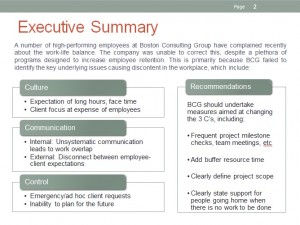I have focused much of my educational and career pursuits on analysis. I take pride in my abilities to accurately assess environments and predict future trends. I believe I developed the skill partly through my university education in Psychology, which taught me to pay attention to nuances of interpersonal behavior.

As part of my military service, I was tasked with building a coherent overview of Israel’s up-to-date regional strategic situation by collecting and organizing data from a wide variety of military and civilian sources. I also presented these analyses to high-level military officials, who used them to better understand Israel’s geopolitical situation.
In journalism, I wrote many analysis articles on political and economic issues. My meticulously honed technique has not only allowed me to produce quality output, but has also given me the ability to reach an evermore broad audience. By carefully selecting the subject, wording and tone of articles, I managed to draw readership to the Jerusalem Post website as aggregaters picked up on my work. One article I wrote about Mitt Romney ended up as the top story on the Drudge Report – a major influential outlet and ranked in the top 400 worldwide website in terms of traffic.
Perhaps my most successful article predicted the January Israeli election results, even while most other professional analyses ended up being well off the mark. Below, find the text of the article.
—————————————-
ANALYSIS: Doing the political arithmetic, 01/08/2013
http://www.jpost.com/Opinion/Op-Ed-Contributors/ANALYSIS-Doing-the-political-arithmetic
With just two weeks remaining until the January 22 national elections, a plethora of surveys reveals the composition of the 19th Knesset. For the unaware or delusional, Netanyahu will remain Israel’s prime minister, and Arab parties won’t sit in the coalition. The right-wing bloc will be strong, the Left will continue its free-fall. This much is certain, barring some last-minute miracle.
Besides these truisms, recent political maneuvers have made the coming coalition increasingly predictable. Last week, Labor party head Shelly Yacimovich said she would not sit in a Netanyahu-led government. She joins Meretz’s Zehava Gal-On as the only Zionist party leaders to publicly declare such a stance. Although her statement can be chalked up to grandstanding – a way to position herself as the only true opposition to a rightist government – it seems consistent in that Yacimovich would not fit naturally into a Likud-Beytenu government.
Netanyahu would be unlikely to surrender the Finance Ministry to one whose socioeconomic ideology so differs from his own; Yacimovich, who campaigned primarily on such issues, would be unlikely to join a government without being given this portfolio.
With Labor and Meretz out of the way, and with no chance an Arab party would be invited into government, there remains but one large question for the 19th Knesset: Will Netanyahu choose a haredi/religious orientation or a secular/centrist one?
Recent aggregate polling suggests the Likud-Beytenu party list will garner 34 mandates, more than half the number required to form government. Netanyahu will be able to choose an assortment of Bayit Yehudi (14), Shas (11), United Torah Judaism (6), Yesh Atid (10) and Hatnua (10), with possibly an extra three from the Am Shalem party, depending on whether or not it can pass the threshold.
WHAT NETANYAHU four years ago called a “natural alliance” when forming his coalition, the strong Likud party coaxed haredi parties Shas and United Torah Judaism into government. On the heels of what turned out to be one of Israel’s most stable coalitions in recent history, Netanyahu could conceivably choose to take the same route after January 22.
Though his own Likud- Beytenu has fallen sharply in polling since last term, when the Likud and Yisrael Beytenu parties had a combined 42 seats, the drop is more than made up for by the remarkable rise of Naftali Bennett’s Bayit Yehudi party, which shot from just three seats last term to a predicted 14 (and rising).
Netanyahu has expressed at least some level of dissatisfaction, however, with his current coalition. There is some indication that both he and Avigdor Liberman blame Shas for high housing prices, with the Construction and Housing Ministry being closely guarded by Shas MK Ariel Attias, who has been accused of doling out public funds to his haredi constituents at the expense of the broader public. The political return of maverick Shas star Aryeh Deri has also ushered in new friction between Shas and Likud-Beytenu, with Deri attacking the prime minister on social and religious issues.
If Netanyahu chooses this coalition, it would ensure four more years of stable governance – a slightly more right-wing version of the current ruling government. The coalition would undoubtedly try to downplay the Israeli-Palestinian track, foster settlement construction – at least in the main blocs – and push for a replacement of the Tal Law that would see haredim continue to study in yeshivas in lieu of IDF service.
A COALITION composed mainly of Center-Right secular/national-religious parties could form the basis of a large unity coalition. Adding Yesh Atid’s and Hatnua’s 10 seats apiece (and possibly more), the coalition could end up with as many as 66 seats. If Am Shalem – the haredi party committed to integrating the insular ultra-Orthodox into Israeli society – passes the threshold, the coalition could near the 70-seat mark.
Far from being a leftist alternative, all parties in this coalition have espoused at least some right-wing political tendencies, indicating that an alliance is in fact within the realm of possibility. Yair Lapid, who heads the Yesh Atid party – arguably the most centrist of the parties – has emphatically denied being left wing, and has expressed support on a number of occasions for the large settlement blocs beyond the Green Line.
Many forget that Tzipi Livni, who heads the Hatnua party, is actually a Likudnikit at heart, having been elected into the Knesset as a member of the Likud in 1999, serving as a minister in Ariel Sharon’s government and remaining a key party member until her breakoff to Kadima in late 2005.
Though both these parties could easily be considered Center-Left, their influence on foreign policy would be tempered by a goliath Bayit Yehudi party and a Likud that has taken a sharp swing to the Right since its primary election in November 2012.
Though all parties agree on the need to integrate the growing ultra-Orthodox communities into Israeli society, a coalition of this composition could experience friction when it comes to the method for doing so. Yesh Atid has been campaigning heavily on sweeping draft reforms that would see significant increases in ultra- Orthodox enlistment into the IDF, whereas Bayit Yehudi seeks to avoid mass enlistment legislation and would prefer to concentrate on nudging the community into the work force.
If it passes the electoral threshold, Am Shalem – a grassroots haredi party dedicated to better integration of the growing ultra-Orthodox community – could serve as mediator of sorts on the issue.
The formation of such a coalition could be a delicate task even for as adept a politician as Netanyahu. Yesh Atid leader Lapid would almost certainly demand a number of ministerial portfolios, including education. Hatnua head Tzipi Livni could stipulate her participation on acquiring a position that would enable her to restart negotiations with the Palestinians, something Netanyahu has already said he would be unwilling to give her.
Both Bayit Yehudi head Bennett and Yisrael Beytenu head Liberman have expressed their desire to attain the influential Construction and Housing Ministry, an issue which Netanyahu will have to navigate sensitively. Nearly all parties would be interested in the Finance Ministry portfolio, which the prime minister has stated he would like to retain for his own Likud party.
If Netanyahu chooses this path, and succeeds in forming the coalition, he would find himself heading a government increasingly focused on mending the secular-religious divide, one which would by and large support settlement construction while leaving the door open to negotiations with the Palestinians.
WITH JUST weeks remaining until the January 22 elections, the 19th Knesset is looking increasingly clear. Netanyahu will ultimately be faced with one real choice following the election: will he seek a repeat of the national-religious/haredi alliance which governed stably this past four years, or will he pivot to parties on the Center- Right, ousting Shas and UTJ from his coalition?
Of course, minor variations of the coalition formula exist. Netanyahu could try to coax Shas into a coalition with Hatnua, or even invite UTJ into a coalition with Hatnua and Yesh Atid. Either Meretz or Labor could just as easily renege on their pledge to sit in opposition to a Netanyahu-led government, which would render this analysis completely void. But excluding any last-minute miracles, the rules of the Israeli political game are set.
Of course, in this land, miracles have been known to happen.






